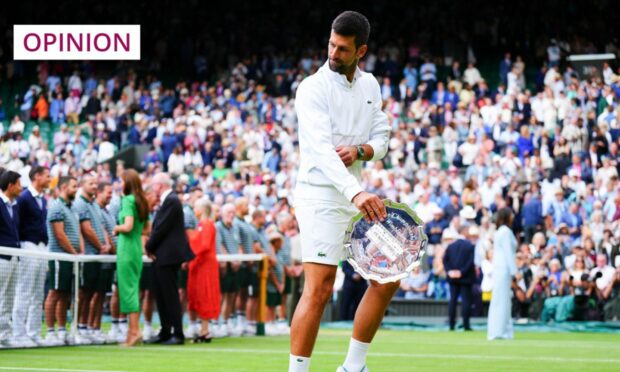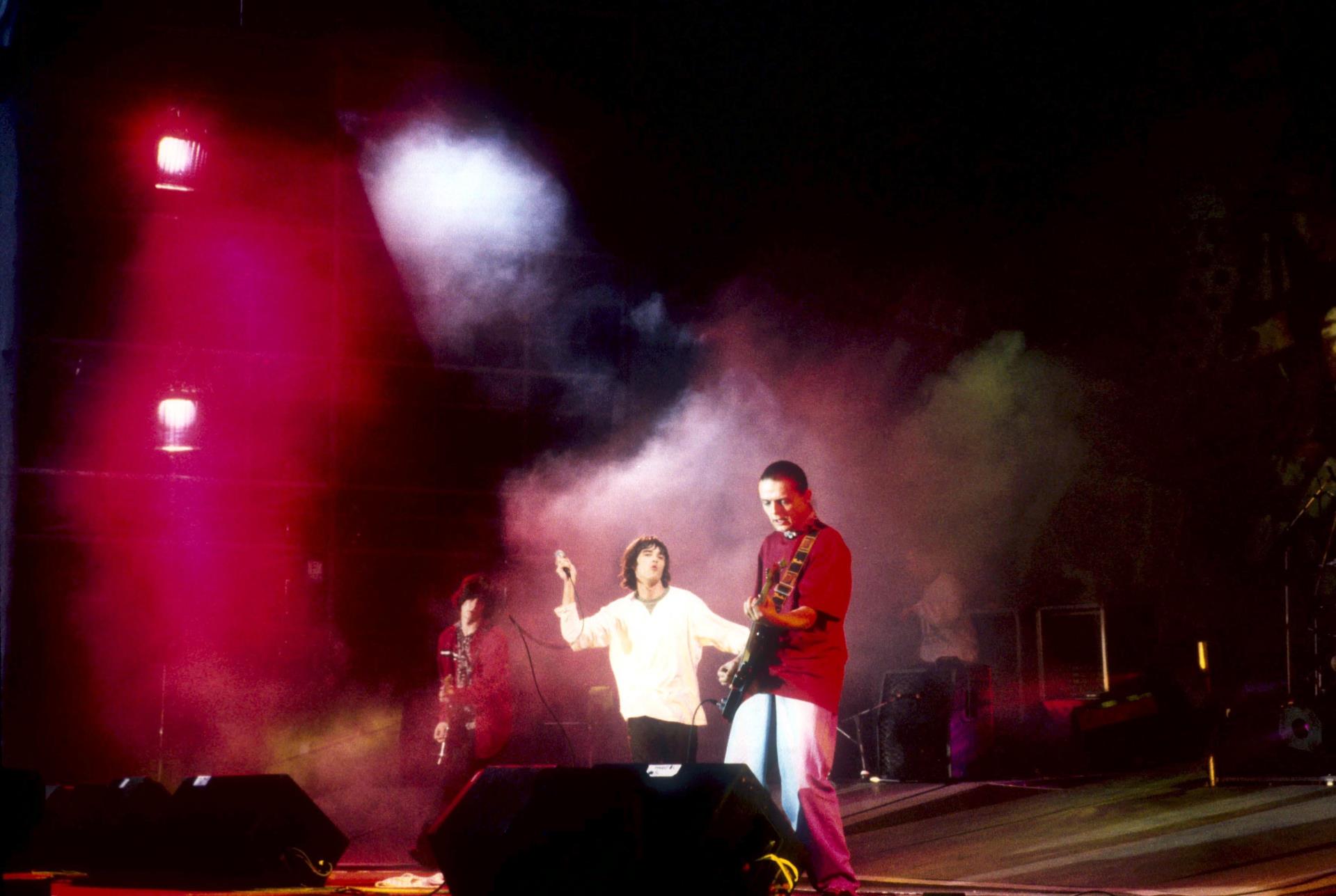“It ain’t happening.” With this brassy boast, it seems, Novak Djokovic sealed his fate.
The tennis star uttered the line after brushing aside Andrey Rublev, one of the tyros attempting to wrest the crown from his ageing head, in the Wimbledon quarter finals.
To be fair, it didn’t sound at all wrong in the moment. Djokovic is perhaps the greatest player in tennis history, and remains formidable at the age of 36, vital and tireless, bendy as a baby.
He may be an other-worldly oddball who believes positive emotions can purify water and who, in his downtime, visits pyramids to charge his body with positive ions, but it seems to work for him. So too do all those seeds, nuts and lentils that he confesses to living on, even if, to the sausage supper-eating classes, this is the diet of a horse.
Hubris, though, is so often stalked by its vulgar cousin, nemesis. It happened. In Sunday’s final, Carlos Alcaraz, a 20-year-old of startling will and talent, pulled a Napoleon Bonaparte, grabbing the crown, ramming it on to his own head and proclaiming himself emperor.
You could see, as the match wore on, that Djokovic was wilting – if not physically, then psychologically. Tennis players count their careers in dog years and so, at 36, Novak is basically in his mid-200s. No matter what he did, Alcaraz kept sending the ball back. The brat was showing that even acute angles have acute angles, and nearly four hours in was still as perky as a spaniel. The Serbian suddenly began to look his age.

Djokovic was unusually irritable, too. He has won seven Wimbledon titles in total, including the last four, but the Centre Court crowd has never really loved him. He was lingering over his serves, and provocatively cupping a hand to his ear after winning key points. At one point, particularly under the cosh, he headed off to the locker room for a lengthy break. Eventually, in a fit of pique, he broke his racket on the net post.
The changing of the guard is never easy for the guard being replaced. This is even more true for elite sportspeople who have measured their years in personal triumphs driven by unrelenting desire and self-belief.
It must be especially choking for Djokovic. “I started playing tennis watching you. Since I was born, you were already winning tournaments,” his pimply vanquisher, 16 years his junior, told him afterwards.
Classy words from the seven-time champion.
An emotional Novak Djokovic speaks after his #Wimbledon final defeat to Carlos Alcaraz… pic.twitter.com/Lvg980Sbn8
— Wimbledon (@Wimbledon) July 16, 2023
Alcaraz has the same upstanding bog-brush hair but a sunnier on-court temperament, and is already adored by the masses. And, since he appears to have taken the best bits not just from Novak’s game, but from those of Roger Federer and Rafael Nadal, he is potentially not just a replacement but an upgrade. Ouch.
An uncomfortable shift in perspective
It’s a lesson for life. We’re all the plucky challengers before we’re the fading champ; the ones who cheer on the exciting new generation until, a few decades later, we’re the generation that, now outraged, stands to be usurped.
It’s an uncomfortable shift in perspective. I remember the thrill of watching The Stone Roses and Happy Mondays appear on the same edition of Top of the Pops in November 1989, signalling the end of the limpid, synth-heavy eighties and the return of guitars and working-class swagger.
Stock, Aitken and Waterman were put to the sword, the dandies of the New Romantic movement left with no option but to donate their blousons and leather trousers to the nearest Oxfam. Were I old enough, I’d have celebrated just as much when the punks sent the prog-rockers running for the hills.
I’d have seen things differently, though, if I were poor Tony Hadley, or Emerson or Lake or Palmer. And I feel a bit differently now. Three decades of journalism have left me perilously close to “veteran” status, which I suspect is often a gentler way of describing someone as a bed blocker.
Come at me, Gen Z
I occasionally teach a writing class, and there is always one young wannabe in the room, a Finlay or a Hannah, watching me with slitted eyes. I can read their minds as I lay down the law about good grammar, fresh metaphor and the need to always consider your audience. “All right, old-timer,” they’re thinking. “It’s a new world out there now. You lack the rizz and you’re giving me the ick. Time for you to touch grass.”
And they have a point. I am immutably Gen X and speak neither Gen Z nor millennial. They have cultural touchstones that mystify me and appetites that sometimes alarm me. They are full of pep.
Sooner rather than later, it will be time to touch grass. But not yet
As I take my wee afternoon nap, Finlay is still hard at it, firing off emails to editors; Hannah is schmoozing at events I can no longer be bothered going to; both are writing about subjects I am largely incapable of grasping, and of saying something relevant about.
Sooner rather than later, it will be time to touch grass. But not yet. Like the ageing champ I am, I will fight on until they prise the pen from my wrinkled, cooling hand. So come at me, bruh – it ain’t happening.
Chris Deerin is a leading journalist and commentator who heads independent, non-party think tank, Reform Scotland

